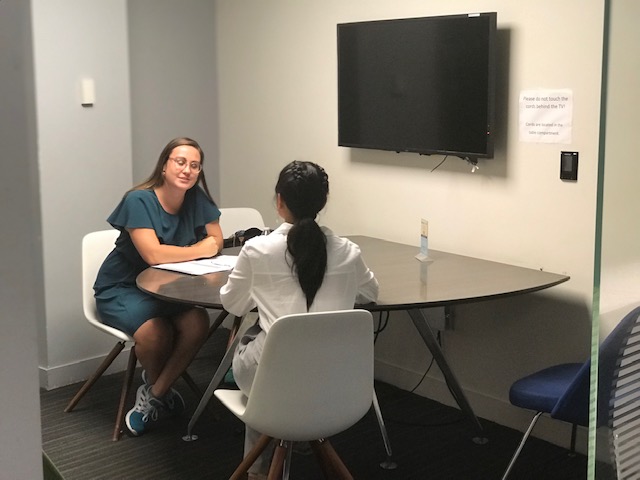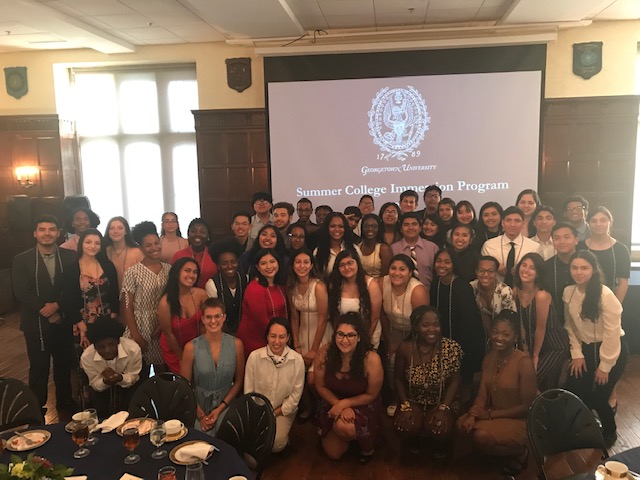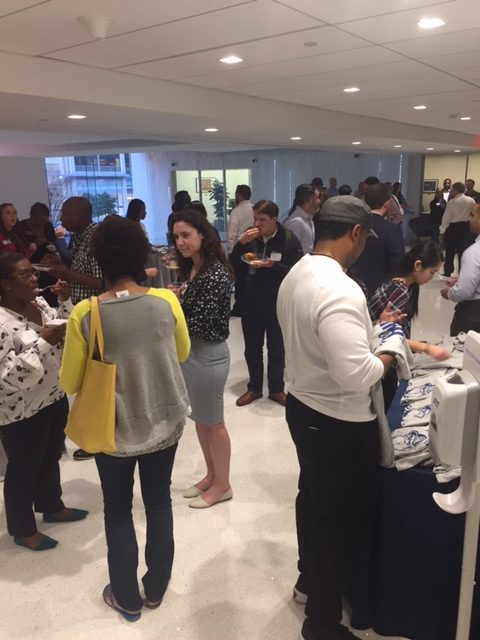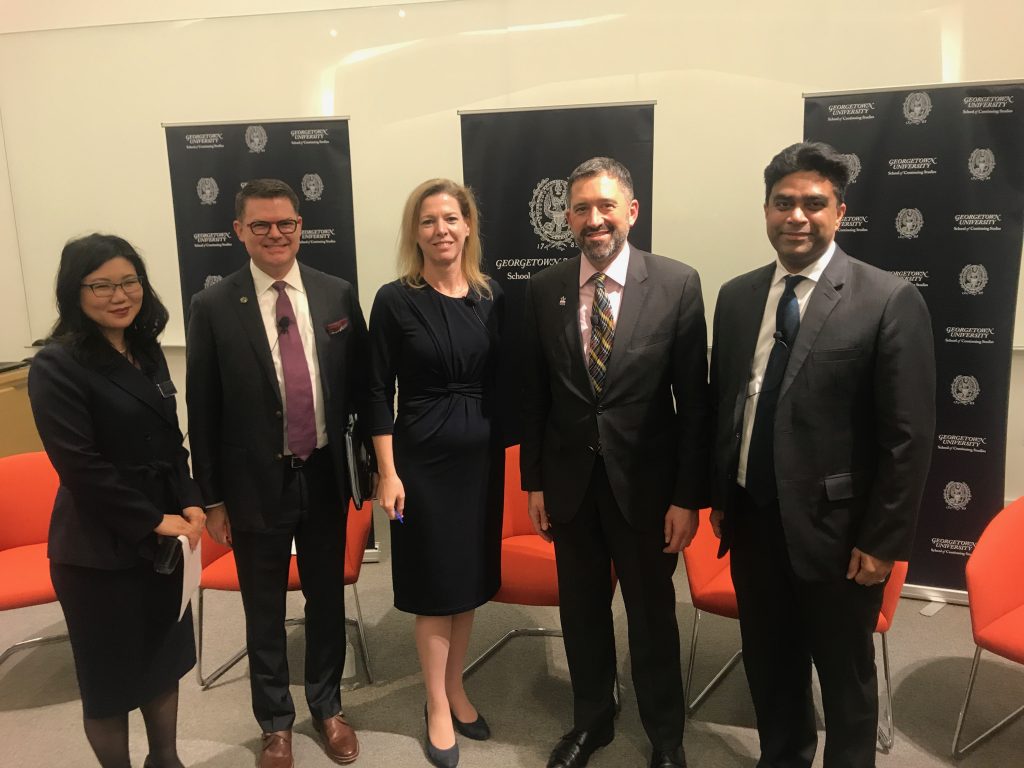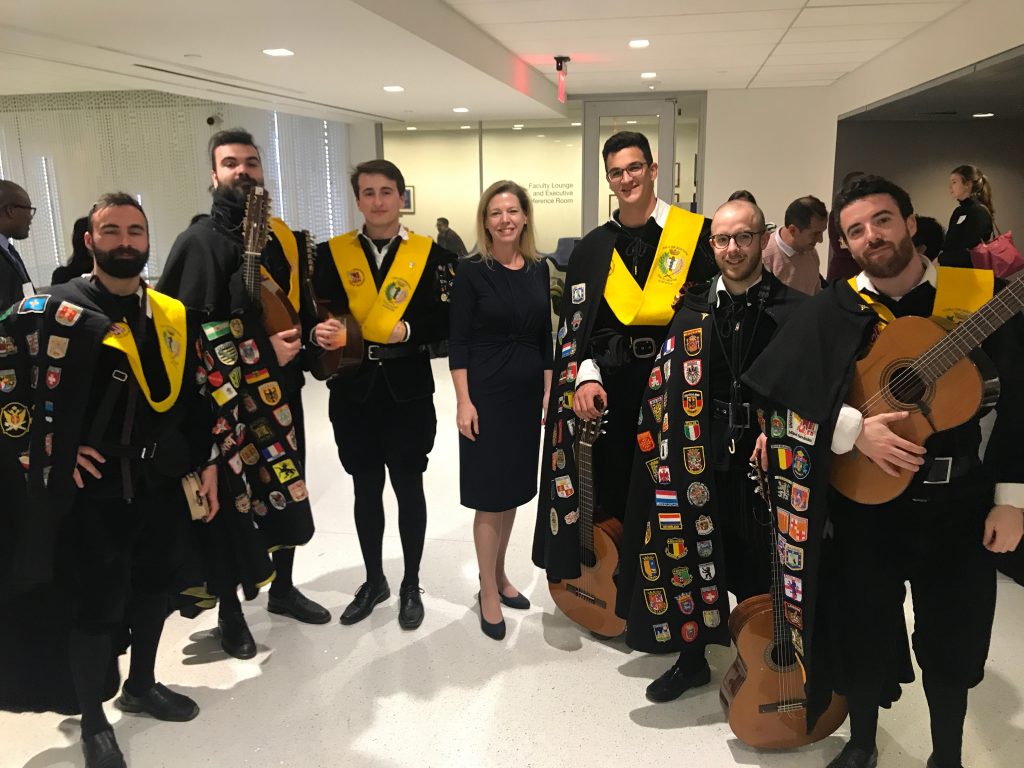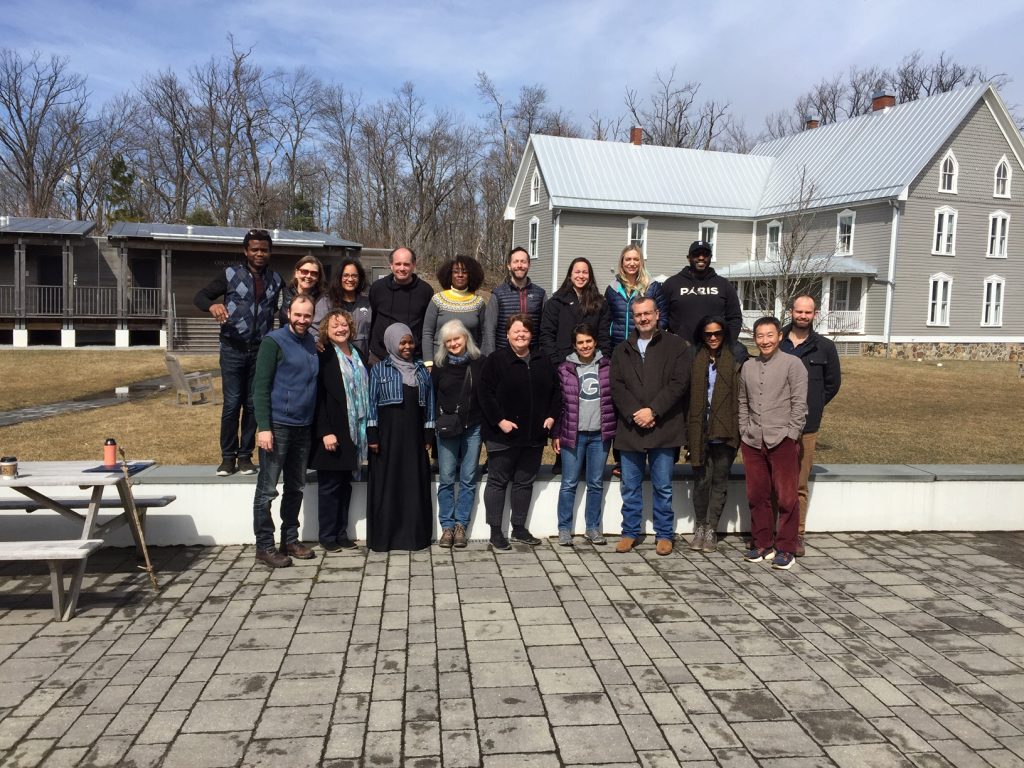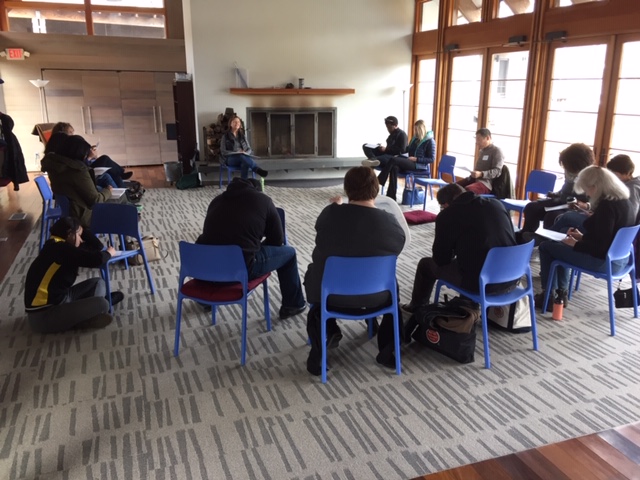This past summer, Dr. Shenita Ray, SCS Senior Associate Dean for Faculty and Academic Affairs, traveled to Peru with a group of fellow Georgetown faculty and staff as part of a Magis Immersion. The purpose of the 10-day trip was to connect more deeply with the university’s Catholic and Jesuit mission by being in solidarity with marginalized persons and communities throughout the country. With the help of the Peruvian Jesuit community, Shenita and colleagues saw first-hand the work of Jesuits and Jesuit-inspired organizations working to address injustice through a variety of education and economic development programs. In recent years, several SCS leaders have participated in the annual Magis Peru Immersion, including Dean Dr. Kelly Otter, who wrote about her experience in 2016.
“Mission in Motion” interviewed Shenita about her experience and its significance for her work at SCS.
How would you describe the immersion? What did you do? What was the purpose?
I did not know what to expect as I didn’t go in with a lot of background or expectation of what was going to happen. We essentially traveled to different cities and witnessed the work of different organizations throughout Peru, many of which were led by Jesuits or Jesuit-based institutions that were helping people in the community with education and economic development. We were able to talk to leaders of those organizations as well as the people in the community impacted by the work that these organizations were doing. It was more about being in solidarity with the people there: observing, listening, and soaking in the environment and the context of Peru. This was my first time in Peru, and my first time in South America. I did not have any context at all. It was a lot just to be present in this different environment than I’m used to. Being present in this way took a lot of emotional energy for me to soak it all in.

Dr. Shenita Ray, SCS Senior Associate Dean for Faculty and Academic Affairs, reflects on her immersion trip in Peru
What was challenging about this experience?
It wasn’t challenging from the perspective of paying attention or being present. It was challenging from the perspective of the injustices that I thought were so prevalent in the communities that we visited. We went to a hillside community where I saw women, men, and children living in homes that I have never seen in my life. There were no roads, no plumbing, and dogs roaming everywhere! I was captivated by the dogs. I kept on asking: why are so many dogs running around? It was hard for me to see people living in communities that lacked access to electricity, clean water, and safe roads. Throughout my stay in Peru, being an African-American woman, I found myself reflecting on how my ancestors were brought to the United States and the meager conditions that they lived in for centuries. I saw some parallels between what was happening in Peru and the legacy of African-Americans in the U.S. This was challenging for me.
What memories, either consoling or desolating, stand out for you?
There was a woman we visited in a hillside community who really stood out to me. We visited her store which was connected to her home, and she talked about her experience of getting to where she was at that point in time. She had been married to an abusive man and she said that often the abuse was carried out in the streets, in the middle of the community. However, she reached a point when she realized that she did not want her children, particularly her son, raised in a violent environment, so she decided to leave her husband. For many years, she worked in jobs where she was disrespected and dealt with a variety of injustices – injustices that I have never had to face in my life. But she had a plan in mind to open up her own store and create stability for her family where she could. She was so proud of the fact that she was able to save up enough money to open her own store, allowing her to create a safe and stable home for her and her children.
She shared that she wanted to teach her daughters, son, and granddaughter that love doesn’t mean verbal or physical abuse. I resonated with her story because it has a lot to do with the legacy of my family, too. That was the consoling part. The part that I still struggle with is that one of her daughters has a disability and does not have access to the services they need. In her mind, her son will assume the responsibility of taking care of the family when he is older. That’s hard for me as an American where we are often taught to believe that we should have control over our own lives and pursue our dreams. On some level, I agree that we should maintain relationships and obligations to our families, friends, and communities. However, I also believe that we should be able to direct our own lives however we want to direct it, and I get the sense that her son’s priorities will center solely around his sisters and his niece, instead of around what he wants to do in his life. This question tugs at my heart strings: What choices do you have in life when there are not services available to help your family?
What were your impressions of Peru?
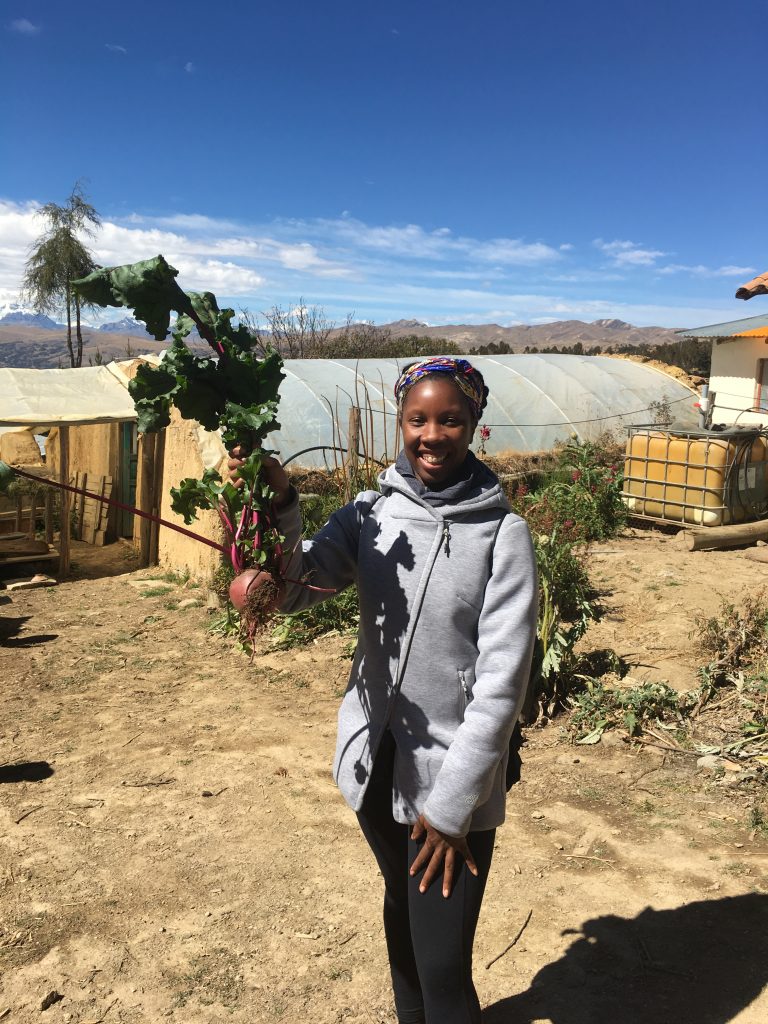
I was struck by the diversity of the geography: the jungle, coastal area, and cities were all absolutely beautiful. The food resonated with me so deeply – I appreciated the variety of spices and how the food was prepared. Even though I didn’t know the language, I felt so warmly embraced in Peru and not looked down upon in any way. People still tried to communicate with me in the market, for example. I thought it was so beautiful. The people seemed really invested in helping me understand their culture, their language, their history, and their values.
How does this critical immersion help you more deeply understand Jesuit mission and values?
I’m still working through that myself. One of the things I talked to someone about who went on the trip with me was the realization of my own privilege; the resources I have access to but don’t use to change circumstances in communities that I am a part of. I know I can do more, but I have to figure out what that looks like. I see this magazine cover from the Maryland Province of Jesuits sitting around SCS with Fr. Pedro Arrupe S.J. that says: “A Faith That Does Justice.” It feels now as if I have been seeing this magazine everywhere since I got back. This line – ‘a Faith that Does Justice’ – I have heard before. But it was only after Peru that I developed a deeper understanding of what it really means. I can now relate to and speak about what it means to have ‘a Faith that Does Justice’. I saw that in Peru – faith is not just a belief, it is what you are actually doing with that belief. Visiting the various Jesuit-based organizations in these communities and engaging in ways that improve the lives of people has helped me see how any one of us can influence change. I resonate with this Jesuit value more deeply now.
How do you plan to bring this experience back to Georgetown and your communities in a tangible way?
That is a question that I am constantly thinking through. One thing I face daily is how the challenges that I think confront me in my work, or how I live, are not that big. They are really not that big. I don’t get frustrated or anxious as easily about challenges in my personal and professional life. Nowadays, I tend to turn every issue that comes up as an immediately solvable and doable opportunity. I’m not suggesting that there are not things that don’t make me anxious, but ever since my experience in Peru, states of anxiety and stress are short-lived because I can immediately see the abundance in the other facets of my life. The scale of the issues facing the communities in Peru are nowhere near the issues we face in this country.
I am much more conscious of being even more present to my work at SCS. I thought I was doing that before I left for Peru, but It feels as if I am even more present, and at a much deeper level. I am more intentional about being present in meetings with colleagues, and I ask myself if it’s absolutely necessary to bring my laptop to these meetings or if I’ll just be checking emails. I remind myself to be more present and learn from and hear what my colleagues have to say. I try not to check my phone as much throughout the day unless I am expecting an important call, and I focus more on what is happening right here, right now. In Peru, I was naturally present and attentive because of the foreign language and my heightened senses. I liked how that felt when I was there.
Anything else to share?
It is a real opportunity to invite people together who don’t know each other to come to this space. The gift in that is the chance to develop a shared experience together. We all saw different things and shared different perspectives, even though we were on the same trip. It was a beautiful thing to witness. I feel as if I received so many gifts from Peru – not the physical kind, but more from the spiritual sense. It is a gift to me to be exposed to diverse perspectives and I feel so grateful to be able to carry those images with me. At the end of each day, we would do an Examen reflection. To be a witness to other people changing, and how they were changing and expressing that change, was breathtaking. Some of us had real changes of heart relative to our expectations or understandings prior to the trip. Oftentimes, you have to witness the contradictions of injustice in order to know that it still exists in the world. After bearing witness to injustices, we are compelled to use our faith to do justice in the world.

